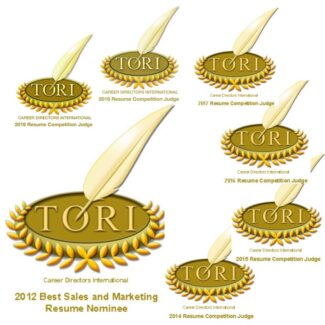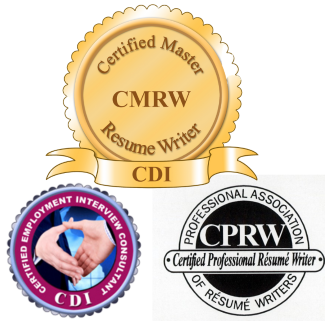As a member of the Career Collective community of resume writers and career coaches, this post is one of many today. In honor of April Fool’s Day, we’re addressing two concerns: “How are you fooling yourself about your career /job search and what can you do about it?” and “How to avoid being tricked by common job search blunders.” I encourage you to visit other members’ responses linked at the end of my post and follow our hashtag on Twitter: #careercollective.
It’s fun to joke around on April Fool’s Day, but not when it comes to your job search! Here’s some advice to help you avoid being fooled by some common job search misconceptions.
Misconception #1: What I do online doesn’t trickle over into my job search.
False. Your online identity matters a lot more than you may think! Recruiters are researching you online. Last month, the Center for Media Research published a study commissioned by Microsoft in an article, “Your Life Could Be an Open Book” (of which I first read in Eli Amdur’s March 28th Career Coach column for the Bergen Record). The findings were very telling. 70% of American recruiters and HR professionals have rejected a candidate based on information found online. HR professionals surveyed also shared that while not only do they check online sources to learn about potential candidates, but online screening is becoming a formal requirement of their hiring process.
On the flip side, only 7% of Americans surveyed believe information about them online has affected their job search and 30-35% of consumers don’t feel their online reputation affects either their personal or professional life and do not take steps to manage their reputations. Let this serve as your wake up call! You no longer have to wonder. Information online about you is affecting your job search. Your responsibility in this is to ensure it impacts your candidacy positively.
In her presentation at last October’s CDI Career Empowerment Summit, Louise Kursmark of Best Impression Career Service spoke to those of us in attendance about the four types of online identities: none, bad, haphazard, and strategic. With that in mind, your goal is to place yourself in that fourth category where your online presence is strategic, cohesive, and on-brand. When this occurs, you’re seen as credible, digitally or technologically astute, and distinguished in your field and from your peers. This is a much stronger way to approach your job search versus finding yourself behind the eight ball trying to hide digital dirt or realizing search results for your name are yielding information about other people.
Misconception #2: My resume has to reflect everything I’ve done in my past positions.
False. The focus of a resume today is to brand yourself to employers to convey to them how you would add value as an employee and what differentiates you from other candidates. This can be achieved with a laundry list of responsibilities in your past positions. Shift gears and begin to think of your resume as a marketing document that’s selling you as a candidate. Along those lines, your summary section up top should not be loaded with boiler plate phrases that could be copied and pasted onto another resume. It should be specific to you and your value in today’s marketplace, because if it’s not, you should assume that the next resume in the stack is doing that exact thing.
Misconception #3: Network? Sure, I network. I’m on LinkedIn, Twitter, and Facebook all the time.
False. So false! I love social media, don’t get me wrong, but the downfall of today’s social media is that it can give people a false sense of security that they are effectively networking. Spending time on LinkedIn or Twitter is a smart component to your job search plan, but in order to reap the full benefits of networking, you need to back away from the computer, pick up the phone, attend a business card exchange or other networking event, or meet up with a former colleague for coffee or drinks. In other words, network the old fashioned way, the way we networked before we became addicted to so many of these networking sites.
I was speaking recently with a colleague, Lisa Rangel of Chameleon Resumes, who made a very thoughtful observation. She commented that people can start to feel isolated or question the effectiveness of social media if they don’t incorporate an interactive component to their strategy. Call that contact on LinkedIn rather than sending another message or pick the phone up and call someone you’ve tweeted with on Twitter instead of sending them another DM. You’d be amazed at how surprised and impressed people will be by the small gesture of picking up the telephone – and how much further it may help you in your networking. You’ll stand out in their minds as sincere and genuine.
And something important to note is that this last point doesn’t apply to just those in job search mode. It can apply to professional networking at any point of your career. I’m following my own advice. I’ve got phone calls scheduled for later this month with two colleagues with whom I regularly tweet, DM, and email. Speaking with them by phone is the natural next step. I love the virtual connections I’m able to make while sitting at my laptop, but it’s infinitely more satisfying and productive to solidify those connections with a phone call. Give it a try – and that’s no April Fool’s…
Posts on the same topic from my esteemed colleagues in the Collective:
10 Ways to Tell if Your Job Search is a Joke, @careerealism
April Fool’s Day – Who’s Fooling Who?, @MartinBuckland @EliteResumes
If It’s Not You and It’s Not True, You’re Fooling Yourself, @GayleHoward
Don’t Kid Yourself! (The Person You See in the Mirror is a Good Hire), @chandlee
Avoiding the Most Common Blunder, @jobhuntorg
Are you fooling yourself? Bored at work? Is it your own fault?, @keppie_careers
Hey, Job Seeker — Don’t Be a Fool!, @resumeservice
Job Search Is No Joking Matter, @careersherpa
Is Your #Career in Recovery or Retreat? (All Joking Aside), @KCCareerCoach
9 Ways You Might Be Fooling Yourself About Your Job Search, @heatherhuhman
Trying to hard to be nobody’s fool?, @WorkWithIllness
It’s not all about you, @DawnBugni
Mirror ‘their’ needs, not ‘your’ wants in #jobsearch, @ValueIntoWords
Stop Fooling Yourself about your Job Hunt: Things you may be doing to sabotage yourself, @erinkennedycprw
Same as it ever was, @walterakana
Don’t be fooled. Avoid these, @kat_hansen
Job Seekers: You Are Fooling Yourself If…, @barbarasafani

